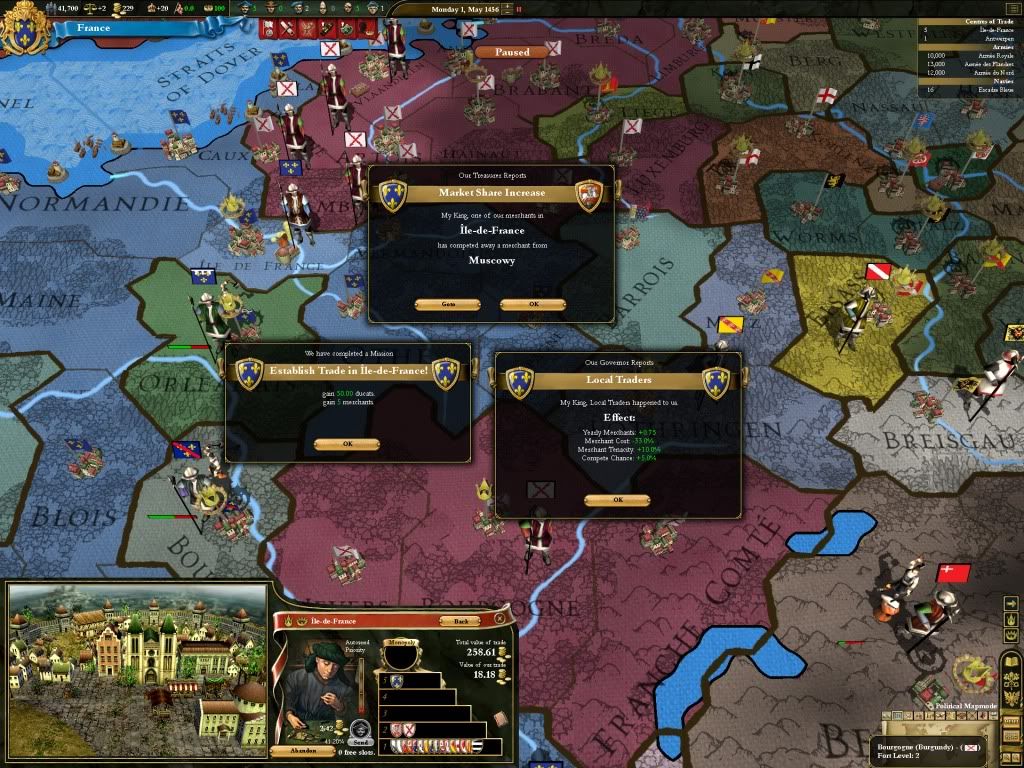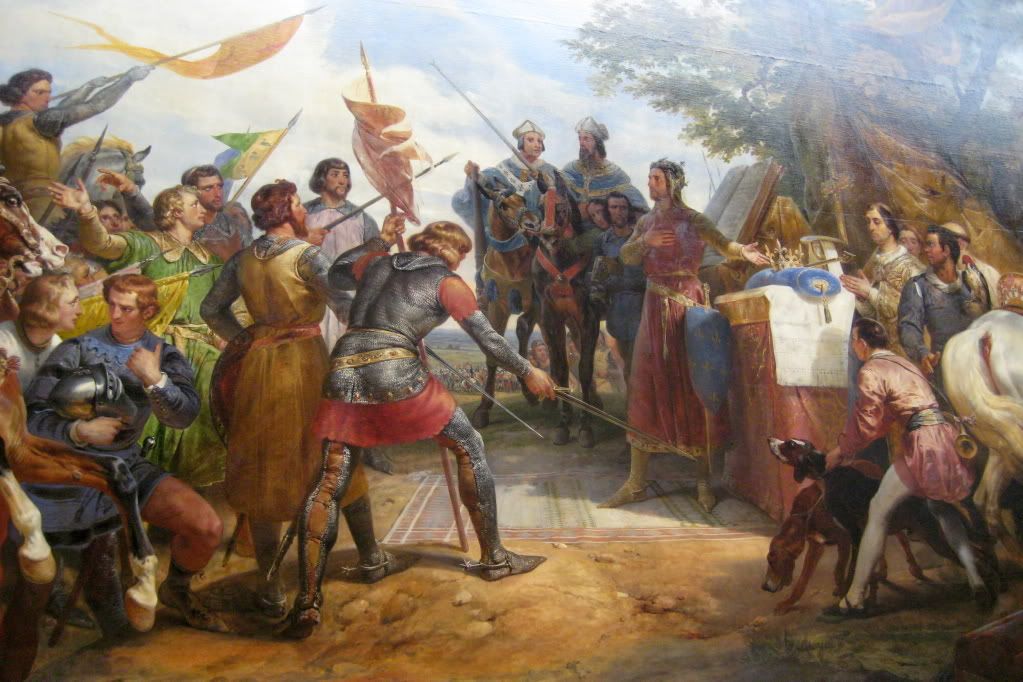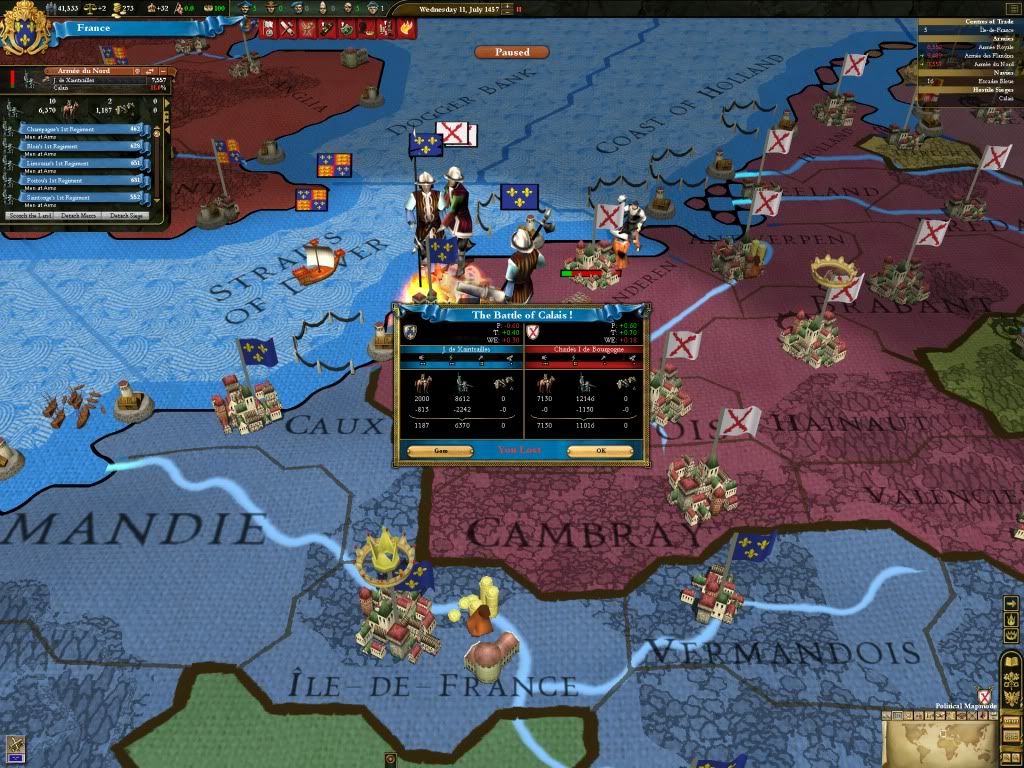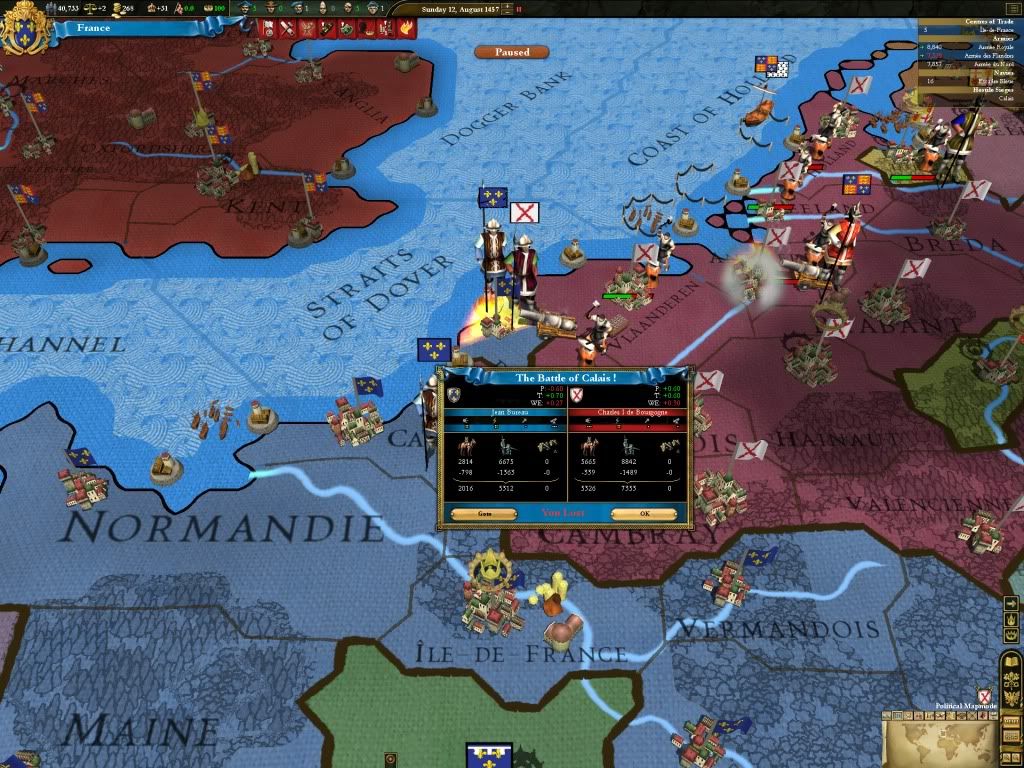It uses a map mod? I assumed it used the HttT vanilla map because it's so terrible, even compared to vanilla DW.
Yes, its a map mod.
You don't want to know the horrors of the original EU3 map.
It uses a map mod? I assumed it used the HttT vanilla map because it's so terrible, even compared to vanilla DW.
You are a lucky weasel, Nick.
In my own MMU experience, the only way for France to get these provinces from England is to longwait them. Apparently Burgundian DOW and problems at home made the English relent this time.
Anyway, great choice of mod. I would wish you luck, but as France what you really need is self-restraint.




The only one you might consider wanting to please is Provence - they are HRE and thus better diploannexed. The rest is just good to gather prestige by canceling vassalization and annexing militarily.One by one, the lords, barons, and duchesses of France's vast vassal network made requests to King Charles VII for loans and monetary support.
If you wish your navy to rival that of the English one day, I suggest building KoSJ priories wherever you can.
Not the coastlines. But at least one version of Magna Mundi, pre-HttT, had a mapmod that made the coastlines look somewhat better and made the land borders look significantly better. I just can't for the life of me remember which version of MM it came with.Magna Mundi was never ported to Divine Wind due to work on the actual game.
So it still uses the HTTT map.
Mind, you'll still need at least two ideas to make your navy useful for something else than stay-in-port blockade deterrent.That's a great idea, I've never thought about that. I always attempted to find a way to improve my navy without having to use a national idea for it. I will definitely take that into account.
But once you've got rid of the "Abhorrence/Lack of Interest" modifiers
Well, it is your game. But as France, you certainly won't be needing any army ideas besides those you start with, so I'd make naval ones a priority after sorting out initial AE issues with an idea or two (maybe Bureaucracy and CAD).



Nice AAR.
I heard Ubik is making a new standalone Magna Mundi.
It looks like it's worth purchasing.


1) Progress of the siege is still at 0%. Burgundian army is large, it must suffer considerable attrition - why were you in such a hurry to engage them?
2) You know you could have timed your armies to arrive into battle on the same day, right? What exactly were you expecting, attacking a host twice your size, with four times as many cavalry?
3) What was your third army doing, picking daisies.
EDIT: It is your navy that is on reduced upkeep, right?
As for MMtG, there are two Let's Play videos out.
That is certainly trueOnce I realized this, I just let the army keep marching anyways, because it's not fun when you always win, and it adds to the story.

Yup.Pardon my ignorance, but what does MMtG stand for? Magna Mundi the Game?
 and good luck with your studies...
and good luck with your studies...